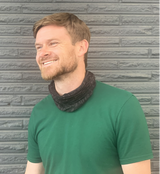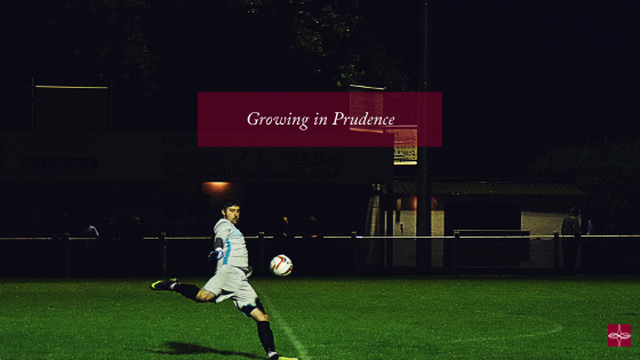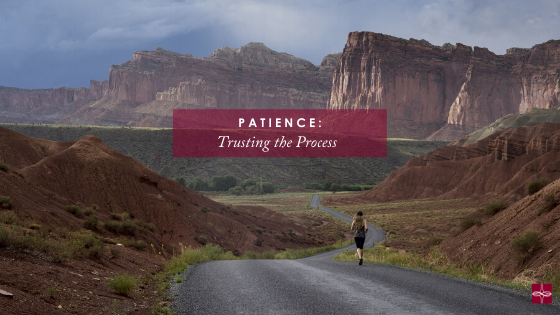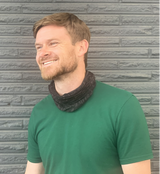|
During my fifth year with D.C. United, the team brought in a nutrition specialist. The specialist gave his presentation and then looked toward a table in the middle of the locker room that held about 40 pill bottles of vitamins, supplements, mild pain relievers, gels, powders, and who knows what else. The nutritionist then walked over to the table, looked back to us, and said, “you know, if you just eat well you can throw all of these out. In fact, you’d be better off doing that.” He left the locker room five minutes later and never came back. For my first five years at DCU, I had been taking those vitamins and supplements at the recommendation of our strength and conditioning coaches and athletic trainers. Now a certified nutritionist deemed the whole thing a waste of time and had even said they could hinder our performance—I wondered what exactly to do. Who should I listen to? This memory has stayed with me because it matters a lot for an athlete what you do with your body. It matters how you train, eat, sleep, relax, and recover. You need to know what is helpful for your athletic development and what is unhelpful. I wanted to know if the pills and supplements helped me or hindered me. This all applies to athletic prudence in the natural realm. Prudence is the ability to judge rightly and act according to that knowledge. It is being able to think through things correctly and then make the right choice. Thus, athletic prudence is the ability to choose and act rightly in the realm of an athletic pursuit. We make decisions and then act based upon what we have concluded is actually helpful or unhelpful in relation to our goal. I would like to apply this same line of thinking to the virtue of prudence in the supernatural realm. We should be asking what is helpful or unhelpful in terms of our spiritual lives. Just like the nutritionist condemning our pill vault and making me wonder what was actually helpful for my soccer career, we should ask what in our lives helps or hinders us from going to God. In order for us to do this, of course, we must acknowledge that God is both our goal and a worthy (the most worthy!) goal at that. When I got to the height of my playing career I was devastatingly depressed for a very concentrated span of time (only several days). For months I pondered why I hit such a low point amidst more success than I had ever expected. Eventually, through the help of the Holy Spirit, I realized that God allowed me to feel the weight of my success without Him. It was an incredible grace—but also one that was difficult to really learn. Over time the truth that my soul was more important than my sport sunk in. I realized that much of what I had made my life about was, in the end, unhelpful for reaching the ultimate Goal who is God. I started applying my athletic thinking to my spiritual life. I started asking the right questions—is this helpful or unhelpful for my spiritual life? Should I be hanging out with this group of friends so much? Are my weekend habits really bringing joy to my life? Am I living as the person I want to be? Do I know who I want to be? These questions led—and continue to lead—me to Jesus, and I find myself needing to ask them again and again. Do the decisions I make help me become who I want to be? Or are my decisions hindering me from being that person? Athletic prudence helps athletes maximize their potential and use their God-given gifts to the best of their ability. This same principle can—and should—be applied to our spiritual lives. Are the decisions, actions, and principles that guide my life helpful? Are they leading me in a good direction? Prudence, says St. Thomas Aquinas, is the mother of the virtues. You cannot possess any virtue without the virtue of prudence because prudence is what enables us to recognize what is truly good (helpful) and then act according to that good. No athlete can become great apart from athletic prudence because athletic prudence enables the athlete to recognize and act upon what helps him or her become a good athlete. Far more important, however, is the realization that no person can become who they were created to be apart from supernatural prudence. It is not possible to follow Christ without first asking yourself what exactly it is you’re already following—what is it that shapes your decisions? It may be a desire for comfort, power, status, honor, wealth, success, popularity, or any number of things. But they all fall short. To be prudent you must know the end goal. You cannot attain the virtue of prudence in the whole of life without knowing that “it is Jesus in fact that you seek when you dream of happiness.”  Taylor Kemp is an instructor for the Denver Catholic Biblical School as part of the St. John Vianney Seminary Lay Division in the Archdiocese of Denver. He is a former professional soccer player, amassing over 100 appearances over six-years in Major League Soccer (MLS) for D.C. United, and playing for both the youth and full United States Men’s National Team. Taylor holds an MA in Theology from the Augustine Institute and BS in Business Management from the University of Maryland, College Park.
0 Comments
“The beginning of all effort is the recognition of what is.” -Romano Guardini, Learning the Virtues That Lead You to God, 1963 Professional athletes do many appearances while playing. We get paid to show up at fundraisers, youth camps, watch parties, and promotional events. Something that is practically a guarantee when attending these appearances is one or more sets of parents coming up to tell us about their child who plays soccer. Often these conversations are quite enjoyable, but almost inevitably, there are a few who want to talk about how their son or daughter was short-changed in their youth soccer experience. There is a lot that these parents say to us, but the consistent element is: my child didn’t succeed because of some external factor. This may very well be the case for some of them. It is equally true, however, that it is certainly not the case for all of them. Much of the time the boy or girl just wasn’t good enough for a particular team, level of competition, or system of play. The point of this post is not to drop the heavy hammer that many kids run out of the athletic ability rope and should give up. No, this post is about the absolute necessity of taking an honest stock of where someone actually is--especially for the spiritual life. Romano Gaurdini says that “the beginning of all effort is the recognition of what is.” The reason for this being that you cannot begin making the effort to improve unless you start with who you already are. Any professional athlete will tell you that it is far more helpful to be taught how to assess and address weaknesses rather than to pretend they don’t exist. In fact, most professional athletes are fairly obsessive about identifying areas in their game where they can improve. If I determine I’d like to be a better shooter with my right foot, for example, then I must begin with the harsh—but necessary—reality that I can barely complete a pass with my right foot. If I never acknowledge my current ability, I’ll constantly run into problems—poor technique, inadequate fundamentals, and so on. I’ll never become a strong shooter without addressing the plain truth of my current ability. This is a skill that requires disciplined practice and will never simply be acquired because I want it to be so. First comes acknowledgment, then a plan for improvement, all for the hope of becoming a good right-footed shooter. This same principle can and should be applied to our spiritual lives. Just as improvement can only take place in athletics by beginning with where an athlete currently is, spiritual advancement can only begin by taking an honest assessment of where one currently is in relation to God. This means you’re far better off admitting that you struggle to pray for 5 minutes and taking that to God than wondering when you’ll receive the Stigmata. It is far more helpful to search deep within yourself and locate and name your pride, selfishness, ego, envy, or lust than only present to God your most pious and holy thoughts. He knows your heart already—He’s just waiting for you to know it as well. One of the most helpful exercises for high-school, collegiate, and professional athletes is to watch film in order to identify strengths and weaknesses. The team watches the most recent game in order to see what needs to be addressed that week in practice. This same concept can migrate into our spiritual lives—we look for points of departure and development in order to draw nearer to God. This practice is not to discourage but to improve. There’s no shame in acknowledging ourselves as we really are. In fact, God can really only begin to heal us once we acknowledge where we are hurt. The Physician cannot tend to our wounds unless we let Him see them. Several days ago, I was talking to my wife about this concept and she brought up how watching film for athletes is similar to the examination of conscience recommended by the Church. Examining one’s conscience on a regular basis is like looking back over the tape to see the strengths and the weaknesses—the graces and the sins—in order to grow. Then, with this self-knowledge, we can go to God, say thank you, and ask for forgiveness, trusting in His merciful love. God looks down on us and loves us as we are, but He also promises that His love is transformative. He looks down and says, “I love you,” while at the same time calling us higher. He wants us to identify what is so that we may cooperate with His grace and begin the beautiful work of improvement. This we call sanctification. May we all be willing to look at ourselves honestly—as we really are—so that we enter into the effort that is the fight of faith (cf Jude 3), trust that God’s grace is sufficient (see 2 Cor 12:9), and become the saints Jesus Christ died for us to be.
"…we constantly find the tension between what man is and what he would like to be; between that which has been realized and that which remains to be accomplished. And it is patience which endures this tension." -Romano Guardini, Learning the Virtues That Lead You to God, 1963, 39. It turns out I really am not a huge fan of working out. After retiring from professional soccer in 2018, I’ve found it quite difficult to motivate myself to exercise when it is not formally baked into my day and when I am not paid to do it. I like being fit, but not the effort and time it requires. There is another reason, however, that I do not like working out, which is: I am impatient. Rather than committing to a regular schedule and planning the workouts to be manageable in difficulty, I go sporadically and push myself to a near death experience. Every. Single. Time. Behind my mindset is a deeply embedded impatience with the process of becoming fit. I want the result without the process—which is not possible. I want to become fit through the course of one rigorous workout and overstep the gradual process that it takes to become a fit person. In sports there is the common—and helpful—phrase of “trust the process.” What this means in the sporting world is that there is a necessary process of development that every athlete must go through in order to become good or great at his or her sport. It means that no one can go from ‘beginner’ to ‘expert’ without passing through ‘proficient’. There is a development in sport—and life—lodged in the school of gradual growth rather than immediate transformation. This frustrates us. All of us have some idea of who we would like to be, which is then immediately confronted by the reality of who we are. What enables us to endure this gap between idea and reality is what we call patience. Patience is needed where there is a desire not yet fulfilled. Case and point—my workout saga. I want to be fit (idea) but am not (reality) and therefore need patience to trust the gradual process of becoming fit. Patience is the virtue needed to shorten the gap and become who I want to be. There is another phrase in athletics related to “trust the process,” which is, “love the process.” What this means is that the best thing an athlete can do on the road to athletic development is not only trust that skill is only developed over time with effort, but that coming to enjoy that slow and gradual development is an extremely beneficial thing. The great athletes do this. There’s a reason you hear so many stories of the best athletes, from all different sports, being the first at practice and the last to leave. They fall in love with the process of becoming better. Apart from a commitment to the process there is no greatness. We must come to trust and love the “process” of being made holy. When I came into the Church in 2015, I was on fire. I wanted to: be a priest (while I was engaged to be married), learn to pray the Rosary, read St. Faustina’s diary and St. Teresa of Avila’s autobiography, make a pilgrimage to Fatima, know the 2000+ year history of the Church, and learn Biblical Greek (all of these are true and I tried to do all of them with the exception of become a priest). I wanted to become a saint overnight. However, I didn’t quite realize that’s typically not how God works. He knows—because He made us—that if He sanctified us too quickly, we’d be tempted into thinking we are responsible. So, just like every natural thing on earth, our spiritual lives develop organically over time, with much difficulty, slow progress, victories and defeats, deaths and resurrections, all for the purpose of maturity. Sanctification—growing in holiness—is a process just like anything else that is real in this life. Character does not suddenly emerge, wisdom is not haphazardly acquired, and virtue is not cheaply gained. All of the things that pertain to our nature—that is what makes a person a person—come by way of the long, winding, and arduous road. We must come to love the road. Guardini points out that—in our spiritual lives—it is often patience with ourselves that is most needed. We see who we would like to be and the faults of who we are. There is a saint in the distance but a sinner in the mirror. All of this is a call to patience—not despair. “Patience with oneself…is the foundation of all progress,” says Guardini. The gap between who we are and who we would like to be is not so much a condemnation on ourselves but an invitation from God to dream bigger, to trust in His grace, and to patiently enjoy the journey. “He who wishes to advance must always begin again,” Guardini continues, and this takes strength. It is easy to float through life without ever attempting the effort necessary to gradually grow, or the effort to begin again, or the effort to examine oneself, or the effort to admit you desire more. The virtue of patience requires strength—an interior strength that can withstand the assault of failure on our ego. Strength to call things as they are. For “only the strong man can exercise living patience, can take upon himself again and again the things that are; only he can always begin anew.” This is a living patience—one capable of enduring “the process” with joy trusting in the direction of one’s life. Jesus, may we all trust in your grace over our efforts and patiently trust the process that is your grace working in us for our sanctification. Help us to learn to be content where we are, focus on what is in front of us, and be satisfied with small steps, realizing that small steps are a big deal. May we be granted the strength to endure our shortcomings in all things, but especially our spiritual lives. May we look to your goodness, mercy, and transformative love and trust that you are leading us—slowly, gently, and for our own good—exactly where we are meant to go.
|
Details
Archives
July 2024
Categories
All
|
About |
Media |
© COPYRIGHT 2024 | ALL RIGHTS RESERVED





 RSS Feed
RSS Feed